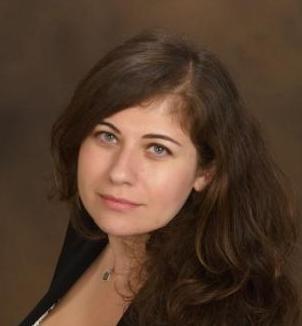Sign Up For Our E-Blast To Receive Information on our Books, Speech Therapy materials and our latest freebies!
Lightening Round Interview 1: Language and Picky Eating in Internationally Adopted Children
Lightening Round Interview # 1:
Language and Picky Eating in Internationally Adopted Children
with Tatyana Elleseff
I’ve added a new segment to my blog called Lightening Round Interviews. For these interviews, I’ll be “speaking” with various experts in assorted professions related to early childhood development.
Today, I welcome Tatyana Elleseff, New Jersey based speech language pathologist for a lightening round of 5 questions on the topic of international adoption. The first question is usually personal and related to how the interviewee became interested in working in a particular area or with a special population. For the last question, I ask for recommended resources on the featured topic.
Without further ado, here’s the first installment of Lightening Round Interviews!
1. Tatyana, you specialize in assessing and evaluating children who have been internationally adopted. How did you become interested in serving this population?
Answer: “Completely by chance actually. When I first started my private practice, one of my hospital based colleagues introduced me to a Russian speaking psychologist who specialized in working with internationally adopted (IA) children. She also worked with a Russian speaking pediatrician with the same specialty and together they started to refer these children for assessment and therapy services.”
2. How should parents who adopt a child from another country communicate with him or her if they don’t speak his or her native language? Any tips for making the transition smoother?
Answer: “To be honest to this day I continue to be utterly amazed how quickly toddlers and preschoolers gain L2 competence once brought into the new country. But the truth is that communication between the child and the adoptive parent begins long before the child’s arrival. Prior to adoption parents have visiting hours and bonding time with their child in the orphanage, which depending on an institution could be quite extensive. It is during that time that the children begin to rapidly pick up the new language and gain communicative competency. For parents adopting older children, I recommend strong reliance on gestures and visuals in order to get their point across. Additionally speaking slowly to the child while over exaggerating essential words will help them learn the basics faster.”
3. How can a child who has been internationally adopted appear to be communicating well during social situations with his peers, but still struggle in academics?
Answer: “That is an excellent point but the truth is that there are several types of competencies Communicative Language Fluency (CLF) as well as Cognitive Language Mastery (CLM). Most IA children adopted by monolingual English speaking parents will acquire the former in a very short period of time, typically +/- 6 months post adoption. Communicative Language Fluency is the language used in social situations for day-to-day social interactions while Cognitive Language Mastery is the language needed to successfully navigate the academic curriculum and is essential for school success. In contrast to CLF, CLM takes years and years to master, especially because, IA children did not have the same foundation of knowledge and stimulation as bilingual children in their birth countries.”
4. Are internationally adopted children known to be picky eaters? If so, why? Any suggestions for parents? (this is where you could say a sentence or two and then I put in a link to your post.
Answer: “Obviously not all IA children will be picky eaters, but issues definitely occur in that area with many younger formerly institutionalized children. It often develops due to numerous physical and sensory constraints associated with institutionalization especially when children were fed highly limited diets that lacked a variety of tastes and textures.”
For more information on this topic, please read Tatyana’s post: How to Improve the Feeding Abilities of Young Adopted Picky Eaters.
5. Can you recommend any resources (books, websites, others) for parents of internationally adopted children.
Answer: “While there are numerous online resources on international adoption parents and professionals must be very careful when navigating them since there’s a significant difference in quality as well as veracity of what is posted
below are a few relevant resources”.
My International Adoption Pinterest Board
Supporting Development in Internationally Adopted Children by Deborah Hwa-Froelich, Ph.D, CCC-SLP
Thank you so much, Tatyana for participating in my Lightening Round Interviews!
Check out Tatyana’s blog –Smart Speech Therapy.
Thanks for reading!
Kimberly Scanlon, M.A. CCC-SLP is a speech language pathologist, an author and a mother. As the owner of Scanlon Speech Therapy, LLC, a unique boutique practice in Bergen County, Kimberly embraces individuality and treats the whole person. Her goal is to spread compassion, hope, and some speech, language and literacy tips one moment, one person at a time. Her first book, My Toddler Talks: Strategies and Activities to Promote Your Child’s Language Development and her her second book, Learning to Read is a Ball
are available for purchase at online at Amazon and Barnes and Noble.

